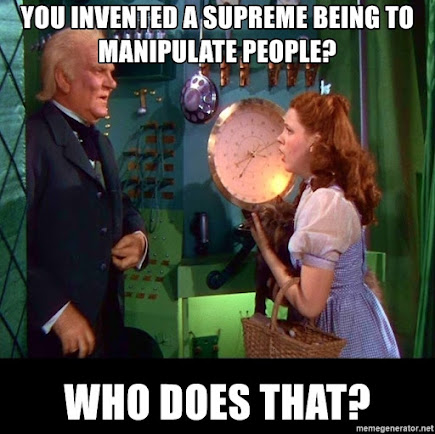If there is no "God", what is "good"?
@catfinity8799 asks:
re "If there is no God, what is good?"
is made even more rigid and permanent
when we factor in :
* a paradise-bribe.
Every religious faction has a mentally "seems real" paradise bribe
which offers to PAY THEM for their loyalty to whichever religious narrative-and-culture they're already plugged into.
And to help ensure that loyalty,
all of those factions are also locked in with:
* the fear of death that bribe is being used to shield against
* the nihilism that many Christians are using their religion as a shield against
* a hell-threat
* the threat of being estranged from religious friends/family/community if we give ourselves the opportunity to migrate our views and values.
With that comes:
the risk of losing all the social benefits (respect, inclusion, support, etc..) which depend on membership in a religious-ideological community
* the ego's fear of becoming 'a disappointment'
to a super-Parent who seems very real
* the risks of losing the selfish comforts that are being generated by that sense of connection to a super-parent
* fear of having to take personal ownership over one's own life's-journey; which would make that person solely responsible for the relationships they have with everything and everyone (including themselves)
* the threat to one's ego after it's been so completely displaced into an external locus of identity (the root of clinical narcissism; due to not getting their psychosocial needs met during formative years),
and then (due to a predatory religion exploiting that opportunity)
becoming deeply crutched into a religious narrative of personal identity and value;
which other men control via the illusion that a "God" is doing that.
These are only some of the ways for "How Religious Fundamentalism Hijacks the Brain" (or "mind"). Psychology Today has a great article about that. [link] I have more to say about this. But it'll have to wait until I have more time for it.
These are only some of the ways for "How Religious Fundamentalism Hijacks the Brain" (or "mind"). Psychology Today has a great article about that. [link] I have more to say about this. But it'll have to wait until I have more time for it.


Comments
Post a Comment